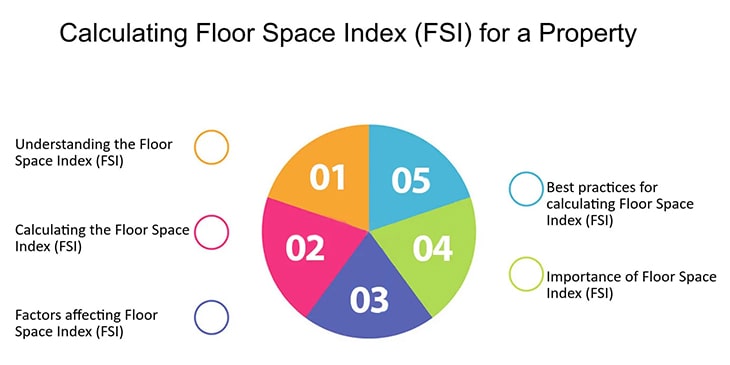
Register here and Avail the Best Offers!!
 +91-999 9011 115
+91-999 9011 115  By Buniyad
By Buniyad 06/13/2015
“Would I be able to get a loan in the event that I purchase an office space?” heard this multiple times from the borrowers who had taken at the very least three home loans, however calls me to enquire on this. Undeniably, getting a loan against residential property is no great deal nowadays, however raising funds for acquiring a business space is a deal. Above all, the general population ‘know-how’ on this matter is truly poor, so this how it functions.
Commercial purchase can be broadly categorized into two categories (A) An office space & (B) Retail outlet. And these two further have subsections like (i) Ready to occupy & (ii) Under-construction. The lenders are definitely much more skeptical on funding in commercial property and all the more for under-development ones. Most commercial property shoppers are ‘financial investors’ and that might be the reason. Nonetheless, many buy for running their own ventures and if that’s actually the case then a lender feels much comfortable too.
A plenty of top lenders do not really fund commercial properties and those who do, they do only the ready ones & rather not the under-construction ones. Thusly, before locking yourself on any project, kindly make sure that you check with your loan adviser to weigh the funding options. The differences between funding a residential & commercial property are: Though the financial documents necessitated by the lender to make out that the loan eligibility of the borrower is same, and here goes the differentiators:-
1. Lesser Loan to Value (LTV) ratio – It ranges between 75-90% for a residential funding. But the funding percentage of for commercial purchasing is restricted to 55%. This implies more self-contribution by the borrowers.
2. Higher fee – The processing fee for the residential purchases are a standard fixed fee of Rs.10000. And during some schemes even reduced fee as low as ‘Nil’ are even proffered to the borrowers. Though it is 1% of the loan amount in the commercial purchase and with some lenders if they are much convinced by the profile of the borrower as well as the property, they lessen it to a minimum of 0.5%.
3. Higher ROI – Rate of Interest is a key factor while borrowing and in commercial type, it is minimum 1-2% higher than the residential ones, however it can surge up to 4-5% in the case if the financial documents are not strong enough and some surrogate product is offered wherein ‘surrogate’ could be like, some other loan track or healthy bank balance etc.
4. Builder category – The lenders are pretty much specific about the builder’s profile in the case if the the property is under-construction. The commercial property will be ready on time or not is the primary concern. On a general basis, a commercial property takes relatively lesser time to be constructed and the number of occupants in one building would be again lesser than that of a residential one. For an instance, there could be a single buyer for one common floor plate or you can say, the number of toilets to be built in a commercial setup is way lesser with no provision for bath-area etc, which in turn makes the construction process much simpler and less time consuming. Lenders will bear in mind the previous delivery-schedule maintained by the builder to decide whether to lend or not in this builder’s property.
5. Technical evaluation – The edifice necessitates the proper functioning of technical specifications compiled with, be it shafts, lifts, escalators, fire-extinguishing arrangements, emergency exit, double staircase etc. The authorized technical evaluation team of the lender will verify every detail. It is not that residential property is not verified well but rather commercial properties do have more perspectives to examine.
6. Obtaining all statutory approvals – The builders is ought to have all the clearances including approved plans, clearance from different departments like fire, forest etc. to be in place. Also, there should be no demolition risk on the property due to any pending approval. Though same goes for residential property too but as mentioned already it is stricter & more in numbers in commercial cases.
7. Loan tenure – It could be as high as 30 years whereas in commercial purpose it is usually restricted to 1 years. And this implies higher EMI outflow for the borrower again.
8. Capping exposure– If someone is buying a commercial property worth Rs.10 crores, and the lender may decide not to lend beyond Rs.3 crores on the transaction even if he is eligible in every aspect be it income-wise and no issue on the property front either. This comes from the terror of the loan going bad and the hit that the lender will have to take in case of occurrence of any such event like building demolition (fire, earthquake etc.) or demise of the borrower. Since insurance is a matter of solicitation and the borrower in India may choose not to opt for it, and the risk continue to remain.
9. Valuation – If the purchase cost is raised unreasonably high by the builder/seller to enable the borrower to take more funding from the lender, it is shot down by the expert evaluation team outsourced by the lender. Almost all of them have multiple experienced valuation-agents who submit report independently and the lender considers lower or the lowest of all, to hedge risk.
10. Residual age of the property – The previously existing properties do not easily get funded not just because of the risk related to the age of the building, but rather not having proper sanction plan or fire-exits or many other things that have been considerably made mandatory in new policy of the lender. So, do have a sharp check with your adviser. Even if it is a popular commercial building which houses large corporates, it probably may not get funded by some or all lenders. On the other hand, retail spaces are relatively more exorbitant than office spaces in the same commercial building in terms of the price per square foot. The lenders do recognise that fact. So, the same edifice wherein the price of the office space may be valued at Rs.20000/sqft, whereas the price for retail space would be quoted at Rs.30000/sqft.
11. Minimum area – The lender would preferably wish to fund a minimum area square foot. In retail outlets, there are small spaces called ‘vanilla’ where typically bank ATM-s etc that are even smaller than 100 sqft area. Also, the lender might refuse to fund any space if it is smaller than 250 sqft or so. Needless to mention that varying different lenders would have different policies in this context, so its recommended to check with your loan adviser again. At the end of it, though acquiring a commercial property works out to be more preposterous for you in terms of monthly outflow, since the tenure is less and the rate of interest is lofty along with more self-contribution to be paid; however, the ROI in commercial property has always been on the higher side. So, if your property is eligible for funding, then why not?
Content Source – http://tinyurl.com/nbtgqz3

Embarking on property investment is a transformative […]

Acquiring property is a substantial and intricate […]

The Delhi-NCR real estate market is poised […]

In the realm of luxury bedroom design, […]

Luxury living, epitomized by builders like Nitara […]

South Delhi has consistently remained a coveted […]

Introduction: The Real Estate (Regulation and Development) […]

The Union Budget 2024 stands as a […]

Buniyad Blog is proudly powered by WordPress